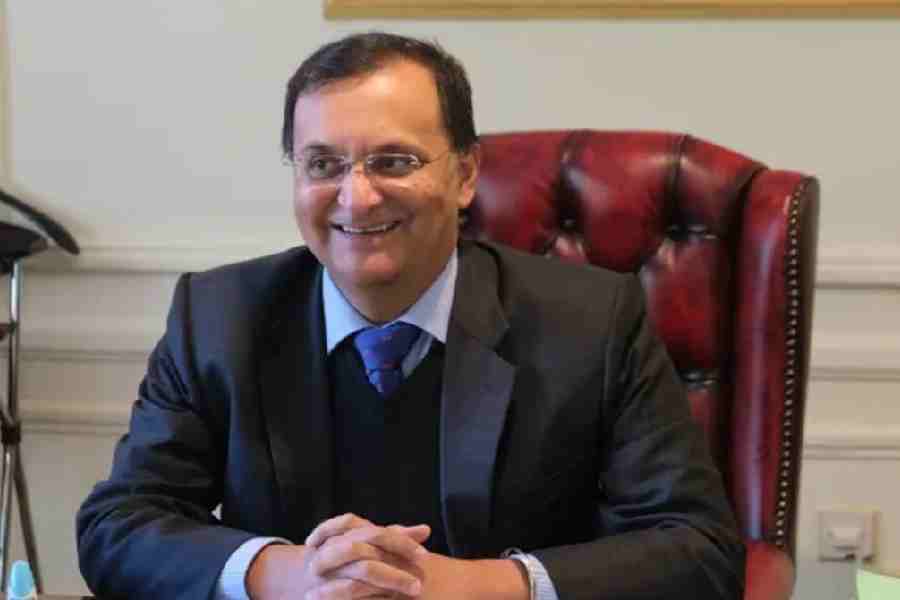All of us have experienced the delightful pleasure that comes from solving puzzles, whether these be crosswords, jigsaw-puzzles, riddles, Sudoku or a myriad others. Solving puzzles, we are told, satisfies the nimble brain and helps keep our mental faculties in good working order. They also serve the function of making us better at a whole host of other activities, including finding solutions to the real-world problems that we are confronted with on a daily basis. There is evidence that puzzle-solving has taken on greater importance during the ongoing pandemic, since puzzles allow a certain kind of neat closure that has become even more necessary for us to experience at a time when uncertainty seems to be the ruling motif of our lives. The pleasure of solving a puzzle, that ‘Aha!’ moment when you get the right answer, reinforces a whole host of mental functions, which benefit us in ways that scientists are still exploring. People exhibiting the first signs of a diminution of their mental faculties are often encouraged to take up puzzle-solving or playing word games. Puzzles have been around for as long as human beings have, and puzzles, riddles, and similar problems can be found in all the mythologies. The Narasimha avatar of Vishnu, who kills the apparently invincible Hiranyakashipu, Oedipus solving the Sphinx’s ‘unsolvable’ riddle, and Macbeth meeting his doom at the hands of one “not of woman born” can all be seen as instances of ingenious puzzles, which require the kind of lateral, tangential thinking for their solution that puzzle-lovers revel in.
‘Wordling’ is not yet an accepted verb, but given the popularity of the word game that’s taken the internet by storm these last few months one won’t be surprised if it makes its way into dictionaries soon. A Google search throws up 1.6 billion results for ‘Wordle’, and articles about the deceptively simple puzzle — where you get six attempts to guess a five-letter word, with coloured tiles telling you if you guessed the right letters in the right places — range from its origins, to the best strategies to win, to how data miners are undermining (pun intended) the simple pleasure the game affords. Just in case you’ve been living on another planet these last few months, Wordle was developed by a Brooklyn-based Welsh programmer, Josh Wardle, for his word-game-loving partner, Palak Shah, and released to the wider public in October 2021. On November 1, 2021, a few days after the game became available online, 90 people played it — on January 9, 2022, that figure reached two million. The latest news about the game, bringing glad tidings to its legions of fans, is that Twitter has banned a bot using the handle, @wordlinator, which would act the supreme spoilsport by leaking the result of the following day’s puzzle on Twitter. Of course, by the time you read this, other articles and news items will probably have supplanted this despatch from the burgeoning Wordle ecosystem.
I was introduced to Wordle by my brother, who sent me a link to the game’s website (https://www.powerlanguage.co.uk/wordle/) early in January, and I’ve been doing the puzzle every day since then. I’ve gone on to send out the link to a bunch of my friends and they, in turn, have passed it on to others, thereby adding a few more to its millions of players. The best part about Wordle for many fans (myself included) is that there is a single puzzle released daily. But not everyone is satisfied with just one puzzle in a day so, inevitably, Cyberia has spawned another online game which allows you to play Wordle as many times as you want: if you want more than your single daily fix, search for ‘word master’ or go to https://octokatherine.github.io/word-master/ and you can play the game for as long as you like. A friend had a winning streak of 72 successful games before stumbling over ‘TA_ES’, where he guessed ‘TALES’ on his sixth — and final — try, only to be told that the correct answer was ‘TAXES’. He has stopped doing the puzzle since.
Other word games inspired by Wordle include Lewdle (https://www.lewdlegame.com/), launched on January 19, where every word is unacceptable in polite company, which has already garnered 700,000 players, and Sweardle (https://sweardle.com/) where you get just four chances to guess a four-letter swear word, but I have no idea how many are playing this “parody/tribute” (as the game’s creator, Stuart Houghton, describes it) to Wordle, but the number can’t be small. Perhaps the most fiendish twist given to Wordle is Absurdle (https://qntm.org/files/wordle/) where, instead of a fixed five-letter hidden word that you have to guess, the algorithm keeps changing the word as you correctly guess the letters that are in it. Fortunately, the number of guesses you can make in Absurdle is not limited, and even though the game sounds somewhat bizarre, you can usually crack the five-letter word even if you take a fairly long time to do it.
Another aspect of puzzles, as is the case for most games, is that they bring out the competitiveness that seems to be an innate part of our nature. An interesting feature of Wordle is that you can show others the number of tries you took to solve a Wordle without actually revealing the letter-combinations you used on your path to success. The internet is flooded with the little boxes that allow you to show others how quickly (in terms of the number of tries) you solved the day’s Wordle, often accompanied by comments like “This was a hard one!” (if you took more than four tries) or “I just got lucky” (if solved in three tries or less). But even such a spoiler-free report of success can provide clues on how to solve the Wordle in question, as has been pointed out by several blog posts and articles doing the rounds, including some which analyse how to mathematically optimize Wordle decision trees, and others which seek to find the best strategy to make sure that the puzzle can, in fact, always be solved in six tries or less.
The expanding Wordle-bubble may or may not last, but logophiles and puzzle aficionados owe a debt of gratitude to Josh Wardle and his labour of love for bringing so much pleasure to so many during such times of stress and uncertainty.
Samantak Das is professor of Comparative Literature and pro-vice-chancellor, Jadavpur University.
Views expressed are personal











